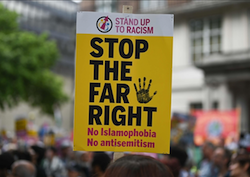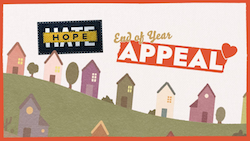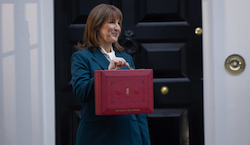‘Anger is a power,’ The Clash’s Joe Strummer once sang. In politics, however, it needs to be channelled through courteous, comradely and informed debate. CHRIS WILSON calls for a new political culture based on an old Labour tradition.
Is it me or has politics become angrier? Passion is a good thing. So is righteous indignation when confronted with injustice. But an unfocused anger, or anger focused in an inappropriate way, demeans our shared humanity and destroys the ability to debate in a rational manner.
 Social media does not help. It amplifies extreme views, giving them a traction they do not deserve and encourages the reduction of political complexity into simplistic – and often destructive – slogans.
Social media does not help. It amplifies extreme views, giving them a traction they do not deserve and encourages the reduction of political complexity into simplistic – and often destructive – slogans.
Ill-directed anger has consequences in the real world. We need only consider recent events where deliberate misinformation fuelled far-right disorder, to see the truth of this.
The same irrationality and anger has affected left-wing politics too. What the far left sometimes calls polemic is often no more that online shouting. No political party or tendency is immune from intolerance.
This is not to defend the indefensible. Discriminatory behaviour is clearly wrong and needs to be called out. But debate – courteous, comradely and informed debate – is the lifeblood of any political party, including our own.
We need all wings of our movement. All traditions have a part to play, and a contribution to make, whether we think of ourselves as socialists, social democrats, Fabians, co-operators, trade unionists, or any combination of the above.
Keir Hardie understood this back in the day when the name ‘Labour’, rather than ‘Socialist’, was agreed for the new parliamentary group that met for the first time in 1906.
Our movement and our party are strongest when it is a broad church. Our pluralism make us stronger. We must learn to disagree without being disagreeable; we must understand that unless we get our own political culture right, any real prospect of changing the world will be much diminished.
Ethical behaviour
The early ILPers understood this. They modelled their socialism through their Clarion clubs, their social events and their co-operative values. Their ethical behaviour attracted attention and inspired new activists.
None of that, by the way, made them less radical. They wanted to replace capitalism with something better, but their democratic, socialist and co-operative vision was glimpsed in how they lived, how they loved and how they conducted themselves. Many took notice, and their influence grew.
Today’s ILP stands in this fine tradition. It still wants to do politics differently and deserves a wider recognition and commendation for its efforts. It is in it for the hard slog, not the short cuts, to create a living community of thoughtful democratic socialists committed to a successful and socially transformative Labour Party.
And it aims to support and celebrate the good things the new government will do (and has already done) while offering constructive criticism when it needs to go further and faster in pursuit of a better world.
We should always guided by the simple principle that the way we conduct ourselves really matters. Pluralism matters. Respect matters. Comradeship matters.
And truth will only be found through thoughtful, respectful debate; not personality politics. And never through name calling on social media.
—-
Chris Wilson is an active trade unionist and Christian socialist.
For more on the ILP’s political perspective see: ‘Our Politics’.
For more on the early ILP and our history, you can buy parts 1 and 2 of ‘The ILP: Past & Present’ here.


